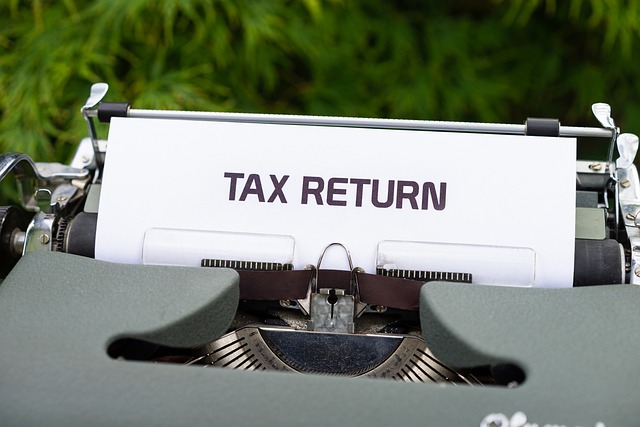How Tax Policies Influence Wealth: Breaks and Loopholes
How tax policies impact wealth is a concern for both companies and individuals striving to maintain earnings and build financial security. Tax policies don’t stop at compliance; they’re instruments that can work for—and sometimes against—your wealth planning aims. By being aware of tax savings and loopholes, you can act in anticipation in order to maximize financial gain and minimize your tax burden.
If you’d prefer to learn about more wealth management techniques, have a read of our article How Financial Leverage Can Multiply Your Wealth.
What You Will Learn
By the end of this article, you will:
- Understand the differences between tax breaks and loopholes.
- Learn how tax policies influence wealth for individuals and businesses.
- Explore the ethical debates surrounding loopholes.
- Gain practical tips for leveraging tax policies effectively.
- Get answers to frequently asked questions about tax breaks and wealth-building.

How Tax Policies Influence Wealth through Tax Breaks
What Are Tax Breaks?
Tax breaks are incentives for certain financial activity, such as investing, savings, and homeownership, that have been created by governments. Tax breaks particularly reduce your tax burden and try to stimulate financial activity that is in your best interest and in society’s best interest, too.
For example:
- Deductions: Reduce your taxable income for items such as mortgage payments and student loans.
- Credits: Provide direct payments to your tax burden, such as the Child Tax Credit.
- Exemptions: Certain types of income, such as municipal bond interest, may, in fact, be entirely exempt from taxes.
When used in a proper manner, savings in taxes enable less financial burdens and wealth development. For more information about general deductions, see this IRS publication concerning tax deductions and credits.
How Loopholes Impact Wealth Distribution
What Are Tax Loopholes?
Unlike tax incentives, loopholes take advantage of unforseen vulnerabilities in legislation. They allow companies and individuals to pay fewer taxes, sometimes at no overall gain for the economy. Nevertheless, loopholes are legal, even when condemned frequently.
For instance:
- Carried Interest: This, in turn, allows investment managers to claim earnings as capital gains, which are taxed at a lower rate.
- Offshore Accounts: Businesses often transfer earnings to low-tax nations, consequently reducing the taxes owed in their home country.
These strategies illustrate how inequality in wealth is addressed through taxing policies, while loopholes, in turn, work in favor of individuals with significant wealth. For further insight, a current discussion about loopholes in taxes can shed light on ongoing developments, refer to The True Cost of Global Tax Havens – IMF F&D.

Who Benefits Most under Tax Policies?
Middle-Class Taxpayers
For middle-income earners, savings in taxes ease a significant burden. Tax programs including payments of mortgage interest, savings in retirement funds, and educational credits save family dollars and enable them to budget for the future. Tax credits including the Earned Income Tax Credit (EITC) can actually increase disposable incomes directly.
If you want to learn more about budgeting tips to help manage tax savings, check out our Budgeting Tips: Your Ultimate Guide to Smart Money Management.
Wealthy Individuals and Corporations
On the positive side, wealthy individuals and entities stand to benefit most through taxes. High incomes can afford to pay for experienced tax advisors to seek out less traditional alternatives. For one, they can use estate planning and complex investing strategies in an attempt to insulate wealth from taxes.
This disparity reveals how tax policies influence wealth distribution, often favoring those who already have substantial resources.
Ethical Implications of Tax Policies
The ethical controversy over loopholes in taxes continues. On one hand, it is argued that loopholes promote investment and stimulate economic development, but, according to others, they widen wealth inequality through exempting wealthy individuals from contributing a fair portion of taxes. Policymakers, therefore, have a challenge in reconciling fairness with incentives in terms of economy.
Moreover, frequent calls for tax reform try to seal these loopholes, offering a fairer system. Nevertheless, such reform will often encounter strong resistances from powerful groups of interests.

Practical Tips for Leveraging Tax Policies
Maximize Tax Breaks
- Plan Your Deductions: Keep track of deductible expenses, such as medical bills or charitable donations, throughout the year.
- Invest in Retirement Accounts: Use tax-advantaged plans like IRAs or 401(k)s to save for the future while lowering your taxable income.
- Explore Energy Credits: If you are considering home improvements, look for renewable energy upgrades that qualify for substantial tax credits.
Stay Updated
Since tax legislation tends to change often, it is important to remain updated. Having a subscription to sound financial newsletters or a consultation with a tax advisor periodically can enable one to respond to new legislation and make wiser choices.
Consult a Professional
A tax expert can give personalized guidance, allowing you to see opportunities that could go unnoticed to an individual acting alone. In addition, a tax expert will maintain compliance, minimizing penalties.
FAQ: How Tax Policies Influence Wealth
1. How do tax breaks differ from loopholes?
Tax breaks are intentional incentives set by governments, while loopholes exploit unintended gaps in the tax code.
2. Are tax loopholes illegal?
No, tax loopholes are legal, though they are often considered unethical or unfair.
3. How can middle-class taxpayers maximize tax benefits?
They can take advantage of deductions, credits, and tax-advantaged accounts to significantly reduce their tax liabilities.
4. How do tax policies influence wealth inequality?
Tax policies often favor wealthy individuals and corporations, which exacerbates disparities in income and wealth.
Summary
Understanding how tax policies influence wealth is vital for anyone looking to optimize their finances. Tax breaks offer significant advantages to middle-income earners, while loopholes often give wealthy individuals and corporations a disproportionate advantage. By staying informed, taking full advantage of legal tax breaks, and consulting experts, you can maximize your opportunities within the tax system. Additionally, participating in the broader ethical debate about tax policies helps foster a more equitable and transparent system for all.



